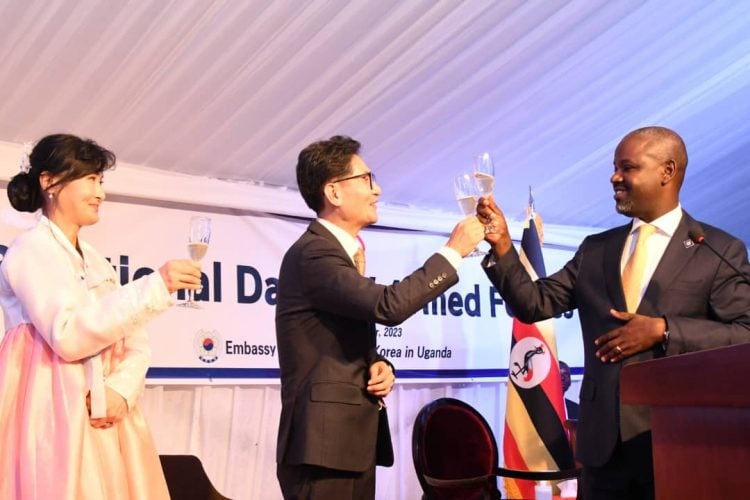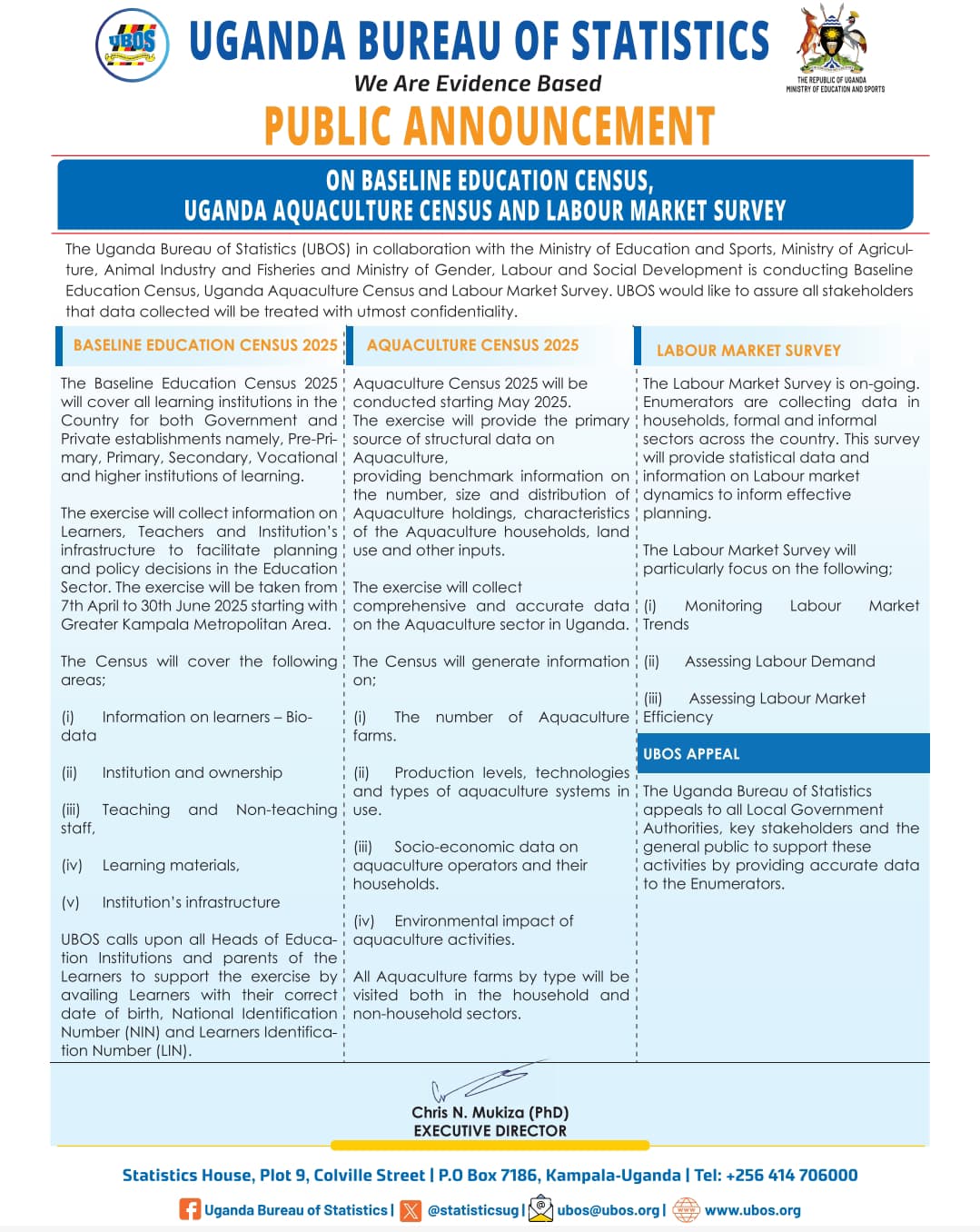
The deputy Speaker of Parliament, Thomas Tayebwa has underscored the contribution of the Republic of South Korea towards Uganda’s development.
Speaking at a function organized by the Korean Ambassador to Uganda, Park Sung Soo to mark 75th armed forces day the national day held at Sheraton Hotel in Kampala, Tayebwa commended the Republic of Korea’s strategic partnership with Uganda in the areas of increasing sustainable production, productivity, value addition in key growth opportunities, and enhancing human capital development, which directly correspond to the country’s National Development goals.
The Korea International Cooperation Agency (KOICA) has been the Asian country’s magic bullet in creating significant impact working with various sectors and groups in Uganda, according to the Deputy Speaker.
Some of the key outputs of the strategic partnerships by the two countries include; the development of the fruit processing factory in Soroti Industrial Park which is addressing value addition in our agriculture sector; and, the $864m partnership between Korea Project on International Agriculture (KOPIA), Uganda Center and National Agricultural Research Organization (NARO) to support Elgon farmers to boost the growing of high-yield animal pastures.
Tayebwa also hailed the Korean government for agreeing to join hands with President Yoweri Museveni in his drive on mindset change with an aim of lifting all households from subsistence to commercial agriculture.
The deputy Speaker hailed the over a half century of productive diplomatic relations between Uganda and Korea with key political, economic and historical benefits resulting from the best principles of mutual respect, democracy and shared interests.
According to Tayebwa, the two nations will look forward to cementing diplomatic, economic and other strategic relations during the upcoming Second Political Consultative Meeting in June 2024, Korea-Africa Summit in Seoul.
“We welcome the upcoming Korea – Africa Summit slated for June, 2024 as yet another opportunity to discuss areas pertinent to the continent and identify new avenues for both technical and financial support, that are critical to leapfrogging of the economic development of Africa, in line with the AU Agenda 2063” noted Tayebwa.
“I take this opportunity to invite Korean companies and individuals to take advantage of the numerous opportunities available in Uganda and invest especially in Uganda’s strategic sectors of agriculture and agro-processing, oil and gas, minerals, ICT, Human resource development, tourism and infrastructure development” noted the Deputy Speaker.
In his remarks, Korean Ambassador to Uganda, Park Sung Soo said that his country which is now the 11th largest economy globally and the 7th importer in the global economic community continues to look forward to doing business and economic cooperation with Uganda.
He requested the government of Uganda to ensure a more trade and investment friendly business environment in terms of legal and institutional aspects, hence promising more cordial deliberations when President Yoon Suk Yeol hosts African heads of State at next year’s summit.
“In this context, recently President Yoon sent his special envoy to Uganda, a key partner country in the East African region, and extended an invitation to H.E President Museveni to this historic event. H.E Museveni accepted the invitation. I take this opportunity to express my gratitude and joy” said Park Sung Soo.
Commenting about the national day and Armed Forces Day, Ambassador Soo said that Koreans on October 3, commemorate the beginning of their nation and history more than 4300 years ago.
At the same celebrations, the Koreans mark the last day of the long Thanksgiving holidays called “Chuseok” which means the autumn night with a fool moon according to the lunar calendar and this comes with a sense of guarantee of material abundance and relaxation of body and mind.
For the nearly 6 decades of diplomatic ties between Uganda and Korea, Ambassador Soo said there have been good relations that have witnessed modest trade and investment achievements and relatively big-sized development cooperation. He also said that there is a lot that needs to be done.







